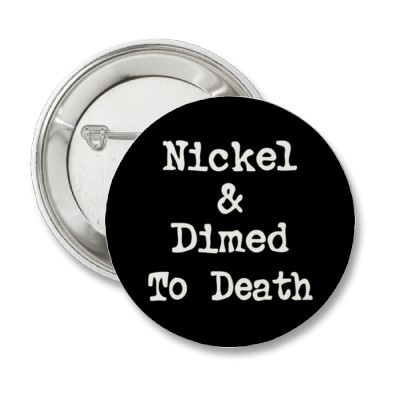In this last week where we talk about “dog whistles,” the terms politicians use to avoid saying the things they believe, I want to talk about Ian Haney Lopez, a UC Berkeley law professor who popularized this term in his 2013 book of the same title.
In a paper he wrote for the Institute for Othering and Belonging, Lopez talked about Richard Nixon’s use of the phrases “law and order,” “forced busing,” and “the silent majority” to foster a fear among Southern white people in particular about Black civil rights. His own special counsel, John Ehrlichman said the “subliminal appeal to the anti-black voter was always present in Nixon’s statements and speeches.” Reagan similarly undermined government programs with his own dog whistles like the myth of the welfare queen and used other racialized language for people receiving government assistance. Lopez went on to note that fifty years of effective dog whistling proved that ignoring it doesn’t make it go away.
Lopez has a great 5-point plan on how to resist dog whistles, but in short,
we need to tell different stories about the world we want,
the barriers to that world,
and the fact that we can create a better world when we join together.
Additionally, demanding good government is an important counter to the dog whistles trying to convince us government can only be bad and therefore we should get rid of it. I kinda want to cut and paste his whole article right here, but read it and feel less alone and more inspired and equipped to take on dog whistles.
How religious liberty morphed into a dog whistle
This is the last week on dog whistles, the code politicians use to pretend they mean one thing when they mean something else. We’ve talked about how the term “superpredator” was used against Black and Brown youth in the 1990s to justify expanding incarceration. We’ve talked about how George W Bush talked about the supreme court case forcing Dred Scott to remain enslaved in order to let anti-abortion forces know he was on their side. We’ve talked about how Reagan used the term “welfare queen” to racialize social services and then get support to get rid of them.
You may know I’ve done a lot of work on religious liberty issues for minority rights in the US. So I want to note how the phrase religious liberty has morphed in the past twenty years into a dog whistle. When I began work in that field, people who cared about religious minorities talked about religious liberty, and people who wanted to make the US a Christian nation talked about religious freedom.
These days, they use the term religious liberty, and it almost always means “we Christians need to take back this country that non-Christians stole from us.” It is meant to evoke—for a certain audience— a narrative that Christians in the US are marginalized and oppressed because they’re not dictating everything in the country. However, as with a dog whistle, it’s only supposed to signal that meaning to a specific crowd while the rest of us think they’re talking about religious liberty for all people. So keep an ear out for that particular dog whistle; it didn’t always mean that, and it doesn’t always mean that now.
So listen carefully. And maybe even ask, when the opportunity presents itself. Do they mean religious liberty to include Native American rituals? The rights of Wiccans? The rights of atheists? If not, they probably don’t actually mean liberty and justice for all…just for some.
A recent ancestor who took on a whole host of dog whistles
The writer Barbara Ehrenreich passed away not too long ago, so she’s a recent ancestor, but she dedicated a lot of her life to pointing out where seemingly innocuous language was used to take away the rights of women and of poor people among others.
A lot of people over the years have talked about how the term “family values” sounds like something we all agree with, except it’s probably not actually talking about your family. Barbara Ehrenreich broke it down really clearly with this quote: “The phrase 'family values' has become a shorthand for a nostalgic version of the past, a past in which everyone knew their place and stayed in it."
But she also wrote about how women were treated in real life based on that concept, and she spent time in various low-wage professions to show how the notion of “up by one’s bootstraps” was an impossible myth, and another dog whistle to tell people who were comfortable that anyone who was struggling had only themselves to blame.
If you haven’t read her book Nickel and Dimed, or Witches, Midwives and Nurses, or any of her books, they’re really all about dog whistles that we definitely don’t notice. I’m grateful her legacy lives on for our sake.
Image from Lehigh Valley Ramblings blog





Thank you for being you and sharing with wisdom, insight and care!